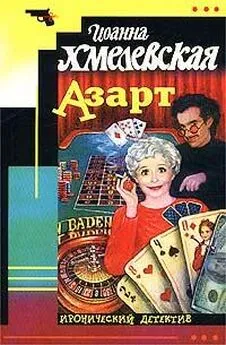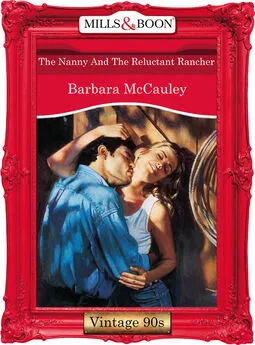Barbara Hambly - Dead water
- Название:Dead water
- Автор:
- Жанр:
- Издательство:неизвестно
- Год:неизвестен
- ISBN:нет данных
- Рейтинг:
- Избранное:Добавить в избранное
-
Отзывы:
-
Ваша оценка:
Barbara Hambly - Dead water краткое содержание
Dead water - читать онлайн бесплатно полную версию (весь текст целиком)
Интервал:
Закладка:
And Rose would have been on her way to Memphis alone.
“You don't think I could have dealt with Mrs. Fischer on my own?” Rose teased as she and January sat on the lower promenade deck somewhere between Vicksburg and Natchez, listening to Hannibal and two of the several servants play an impromptu trio on Stradivarius and spoons.
“I think you could have,” said January, “had the playing-field been a level one. But it wasn't. I think the minute Hannibal and I were out of the way, Mrs. Fischer would have done something—forged papers, or sworn out an affidavit that she'd seen you owned by someone in some other town—that would have ended up with you being taken as a slave by Gleet. Then God knows where you would have ended up.”
Rose thought about it, her face growing still. Then she glanced at the promenades along both sides of the engine-room of the Gloria 's main deck, where lines of slaves were chained, going to market in New Orleans. “I think you may be right, Ben. There are some things that we simply cannot fight.” She closed her hand around his as clouds of ash and paddle-spray drifted over them and, along the banks, vociferous bullfrogs croaked in the gathering darkness.
They reached New Orleans on the third of July, in hot darkness with palmetto bugs roaring around the cressets that illuminated the levee. January half expected, with all that had gone wrong on the river, to find their home reduced to a pile of ashes. But his sister Olympe's son, fourteen-year-old Gabriel, greeted him at the door with the news that he and his father had been trading off sleeping there at night—that Cosette Gardinier was just fine at her grandmère's out at the lake, and that no, there wasn't much sickness in town except a little bit of fever and no, the house was fine except for the fire in the kitchen and that hadn't burned up too much. . . .
January sent a note via Gabriel that night, to Hubert Granville, and though it was past two in the morning, he, Rose, and Hannibal walked along Rue des Ramparts in the cicada-sounding darkness, to the cemetery of St. Louis. In the thick summer heat the town was silent, except for the far-off clamor of the gambling dens along Gallatin Street and the quieter din of the more respectable gaming parlors on Rue Orleans. Had the Four Horsemen of the Apocalypse ridden their steeds into those establishments, January didn't think the play there would even pause.
Somewhere in one of the dark houses, a man and a woman sang an aria from a popular opera to the light, tinny music of a piano. It was a lilt of joy against the leaden hum of mosquitoes above the gutters.
Congo Square was empty, whispering with the scent of ash and burned flesh. On one of the plane-trees there, January glimpsed the ant-creeping corpse of a snake, nailed to the wood with a rolled-up paper in its mouth. January helped Hannibal—and Rose, who was dressed in a pair of Hannibal's trousers and a calico shirt—to clamber over the wall, the resurrection fern that grew atop it flicking like ghost fingers at his flesh as he followed them over.
He found the DuFresne tomb, near which he'd waited for Queen Régine, and the statue of the sleeping child. Close to it, after a little search, he found the crumbling nameless tomb where he'd seen Mrs. Fischer in her green and cream-colored dress, with Weems pushing a barrow behind, a little coffin resting upon it.
It must have been the final load of several, January thought. The two of them couldn't have lifted any box containing all the gold at once. The big lock on the wrought-iron grille that surrounded the tomb gave silently, recently oiled.
Rose's eye met his with a glint of triumph as they grasped the iron ring and, with a shrill scraping of iron on marble, opened the door of the tomb itself.
There were five little coffins there, all crowded into the cramped brick space that whispered with insects and rats.
January unlocked the padlock of the top one's lid, and took the lantern from Hannibal to hold it close as he untied one of the sacks within.
“It's six hundred pounds of vegetarian tracts,” he said in a disappointed voice.
But both his friends saw the dancing light of triumph in his eyes, even before he gave himself the lie and held up the handful of glittering gold.

TWENTY-TWO
Hubert Granville expressed great doubt and disappointment when January withdrew all but two hundred dollars of his money to pay off the house free and clear. “You're leaving yourself nothing to live on,” the banker warned, which January knew was true. “It takes time for a school to establish itself. You'll be in debt head over ears before you know it.”
“We can deal with that,” January replied.
Rose added, “At least we'll be sure of a roof over our heads while we starve.”
Granville shook his head, and drew close the branch of candles to illuminate the draft to be paid to Rosario DeLaHaye. It was again evening, as hot as it had been a month before, when he'd sat there last at the big oak table in the dining-room, to tell January that the coffers of the Bank of Louisiana were empty, and his money gone.
“At least invest it in something worth your while,” snapped January's mother, the elegant Widow Levesque. She had joined the banker in visiting the Januarys that night, a week after Granville and several unobtrusively armed bank officials had transferred the five little coffins from the cemetery back to the bank itself. Granville, January thought, had visibly lost weight during the past month, and looked like a man who had not slept much or well. His red-gold hair and beard seemed faded, and there were smudges of weariness under his piggy hazel eyes. He shook January's hand over and over again, repeatedly assuring him that if there was anything he ever could do . . .
January wondered how well that assurance would hold in times of real financial distress.
“A school will get you nothing,” declared the Widow Levesque, folding her lace-gloved hands over the ivory handle of her parasol. His mother was slim and still beautiful, and there was something in the shape and setting of her eyes that reminded January, in the candle-light, of his sister Olympe. “Even the four best schools in the parish return no more than twenty percent, and I don't think there's a school in town that returns more than five percent its first five years . . . if you can keep it open at all. If you must invest, invest in slaves, as I told you before. If you feed them on rice and beans, and sausage only once a week, it costs you only . . .”
To hear her, January thought, one would never think she'd been a slave herself. He wondered if she'd ever been chained to the side of a steamboat, if she'd been fed from a bucket and had to hang out at the end of her chains to relieve herself over the side.
It was not something he could ask her. Not if he ever wanted her to speak to him again.
“Maman,” he said gently, “Rose and I have talked this over at length, and we think a school is best.”
One couldn't really say to one's mother, We believe in educating the young, rather than putting chains on the innocent.
“Besides,” said Rose, who had learned in the past six months a great deal about handling her mother-in-law, “who knows when the State Legislature might not forbid people of color to hold slaves? They could, you know.”
Livia Levesque stared at her in horror, the first time January had ever seen anyone break his mother's armor of self-satisfaction. “They most certainly could not ! We pay our taxes . . . we support their businesses. . . .”
They will do to people of color, thought January, whatever they wish. And there is nothing we can do about it, except leave.
If there is anywhere for us to go. From what he'd heard from Dodd the manufacturer, and from some of the deck-hands who'd tried to make a living in Cincinnati and Alton, the North didn't sound like any paradise either.
“The least you could do is teach people who'll pay you decently,” the Widow Levesque went on as Rose refreshed her coffee-cup and offered her a plate of pralines. “Nobody's going to pay more than fifty dollars a year to educate a colored girl . . . these are stale, by the way. Did you get them from that Vignée woman on Rue Royale? I thought so. . . . Hire a white teacher and make it into a boys' school; they pay the best. You could even get that worthless fiddler to teach Greek, if you can keep him sober. I don't expect he'd cost much. . . .”
“Dearest,” sighed Rose as January returned from seeing Granville and his mother out the door, “it breaks my heart to have to tell you this, but you're so good to me, you really ought to be warned about it: one of these days I am going to murder your mother.”
“Let me know when you're getting ready to do it so I can dig a grave for her under the house.” January slumped back into the chair and poured himself the remains of the coffee. “You shouldn't have to do everything around the school.” He added in a voice of mock horror, “Why, this coffee's Mexican rather than Ethiopian! And the plate the pralines was on isn't Sèvres.”
“The plate the pralines was on is going to be in pieces over your head, sir.” Rose settled herself comfortably on his thigh, and took the cup from his hand to take a sip herself. “I think the part I liked best was when she went around the room pinching out the candles,” she added thoughtfully, and January laughed—his mother was always lecturing them about the cost of candles, though she also expressed scorn that they burned tallow rather than beeswax. Only a single branch of them had been left burning on the table after the Widow Levesque's parting lecture on economy. It made mellow pools of light on the worn oak, leaving the corners of the dining-room and the simply-furnished cavern of the parlor in darkness.
It was after ten, and the street outside was quiet. The shutters were closed against the mosquitoes that hummed in the darkness.
But with the signing of the draft that Granville would deliver to DeLaHaye the following morning, the house was theirs.
“Mr. Granville is right, you know,” Rose added quietly. “It is going to be hard to make ends meet for a time. I'd hoped you wouldn't have to keep on with music lessons. That you'd have time to write music of your own . . .”
January shook his head. “I can teach them around the classes here,” he said. “And playing balls and the opera is really only from Christmas to Mardi Gras. And I do my best writing late at night anyway. We'll manage. . . . Now, who's that?” He looked up at the sound of knocking on the door.
It wasn't Hannibal's usual brisk long-short-short-long rap, more like the knock of a walking-stick.
January lit a candle on one of the extinguished sticks and carried it to the door.
It was Jubal Cain.
Judas Bredon.
For a moment all January could do was stand staring at him in shock. He was far too well-dressed to be a ghost, and as far as January had ever heard, ghosts walked around with their wounds still gaping and, when possible, dripping spectral blood. Bredon's left arm was in a sling, and there was a half-healed cut on his right temple as he removed his hat. The yellow glint of his eyes in the candlelight was unmistakable.
He said, “Mr. January?”
January stepped back. “Mr. Cain,” he said. And then, recollecting himself, “Mr. Bredon. Please come in. It's an honor to have you in our home, sir.”
Читать дальшеИнтервал:
Закладка:








